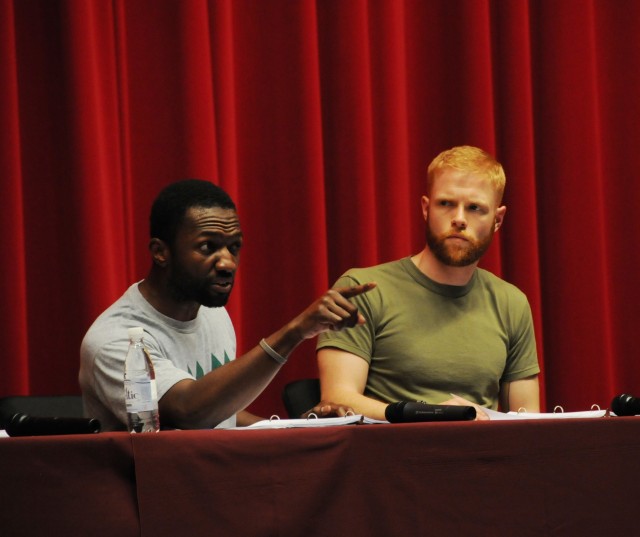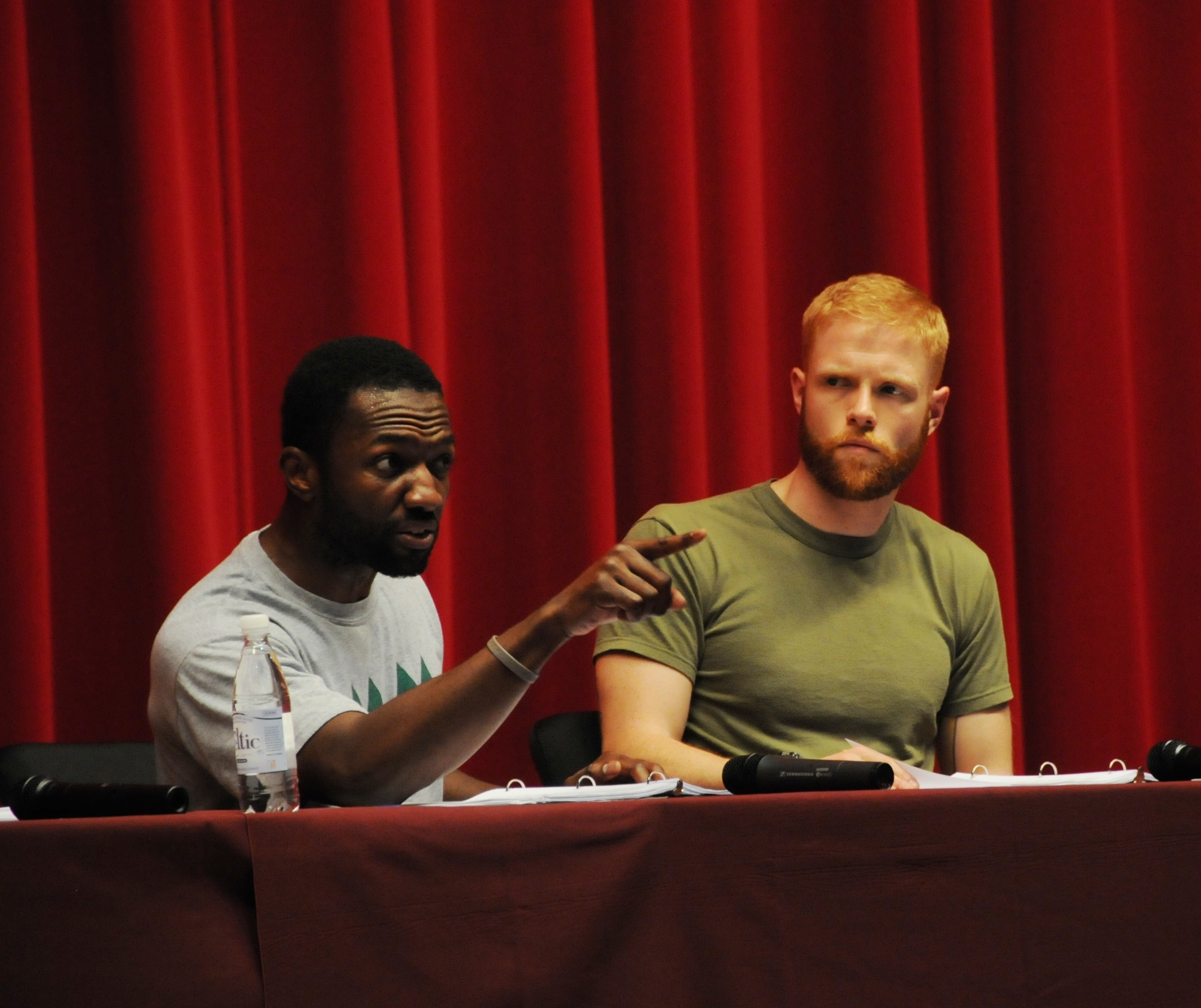
HOHENFELS, Germany - Though the military community has placed increased emphasis on psychological health over the past few years, the issue is certainly not a new one and Soldiers and community members at U.S. Army Garrison Hohenfels saw just how ancient it is during a performance at the post theater, when actors with Theater of War Productions performed dramatic readings of Ajax and Philoctetes, plays the Greek playwright and general Sophocles wrote almost 2,500 years ago.
Director Bryan Doerries said the two stories - Ajax, about a warrior who tries to kill his commanding officers and then kills himself, and Philoctetes, about a famous Greek warrior who, after contracting an incurable and painful illness, is left on a deserted island by his fellow soldiers - remain as relevant to today's military as they were to troops in Sophocles' time.
Doerries said his company, that performed 17 other readings at military locations throughout Europe in May and has performed more than 85 total to date, uses the plays to start a conversation about the psychological aspects of war and the challenges faced by service members and shared by their families, caregivers and nation.
After accomplished stage and screen actors with screen credits that include Law and Order, the Wire, Heroes, Taking Chance, The Talented Mr. Ripley and more, performed the readings, the spotlight shifted to the audience of Hohenfels Soldiers.
A panel of five Hohenfels community members and Soldiers started an audience wide discussion of the dramas by volunteering their reaction to the stories. Doerries then asked the audience questions about the meaning of certain scenes or lines in the play.
As many Soldiers volunteered their insights, Doerries and the audience discussed issues such as the emotions that occur when a comrade is killed, the role of pain and anger in grief, how to help a friend or loved one who is hurting and how to find meaning in suffering.
Though the performance and discussion lasted only about two hours, Doerries said he hopes those two hours are just the start.
"We hope that the conversations we start in this room radiate out and continue for days to come," said Doerries.
While Doerries said the mission of the company is to help de-stigmatize psychological injury and start discussions among service members about how to recover, he also spoke extensively about how important it is for the rest of the country to enter that discussion.
After talking about what it means to care for a soldier who is injured physically or psychologically, Doerries said, "I think this pertains not just to battle buddies or military families, but I think it pertains to our nation because I think until the 99 percent of us who didn't volunteer to deploy to Iraq or Afghanistan listen to what those of you who did have to say, and you are the ones speaking and we are the ones who are listening, I don't think healing is going to begin in our country.
"It is a responsibility for us as civilians to be the ones who are listening and the ones who are creating the conditions for healing to happen."
"If we're going to be a nation at war, we should be a nation at war, not just a volunteer Army...That is the spirit with which we brought this project here," said Doerries.
The director said above all, he wanted service members to know they are not fighting this war alone - neither the wars in Afghanistan or Iraq nor the private wars many must fight upon their return.
"I couldn't think of a more important message to be delivering at this point in time in our history and I think if we were going to deliver a message from general Sophocles 2,500 years ago to you today it is this: you are not alone in this room, you are not alone across the country, you are not alone across the world and most importantly you are not alone across time. The issues that many folks today may feel like they might be the only person on the planet dealing with them are age old and warrior culture before us has struggled with these issues and made plays about them."
For more information and resources about psychological health, including access to 24-hour help, visit the Defense Centers of Excellence for Psychological Health and Traumatic Brain Injury Web site at www.dcoe.health.mil.
For more information about Theater of War, including videos of performances and audience reactions and information about future performances, visit www.theater-of-war.com.
Related Links:
Defense Centers of Excellence for Psychological Health and Traumatic Brain Injury

Social Sharing